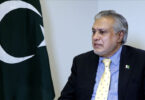Hayah Bahroni
The closure of the zoo in Islamabad, once a beacon of wonder and joy for many, marks a heartbreaking chapter in the city’s history. What was once a place of fascination and education has descended into a state of neglect and tragedy, with animals suffering due to poor care and inadequate conditions.
As someone who treasured this facility in my youth, the recent events surrounding the zoo’s mismanagement and exploitation by self-proclaimed saviors of animal rights are deeply troubling.
Growing up, the zoo held a special place in my heart. It was a sanctuary of discovery, where I could marvel at creatures from around the world and learn about the importance of wildlife conservation. However, recent reports of animals being poorly fed, neglected and even meeting tragic fates like the burning of a lion have shattered the image of this once-vibrant institution.
The transition from a well-maintained facility to a haven of neglect and exploitation was a result of the zoo falling into the hands of individuals who had ittle to no experience of handling the affairs but instead prioritize personal gain over the well-being of the creatures they are meant to protect. On the other hand, the so-called animal rights mafia had turned a blind eye to the suffering of the animals, perpetuating a cycle of cruelty and disregard for life.
And now after the closure of this facility they have used the situation to suit their own vested interests and are now looking to expand the influence even on the hiking trails. Unfortunately these people are only concerned for their own fringe benefits and have no pain or empathy for the poor animals.
It is imperative that sanity prevails and responsible authorities step in to rectify the dire situation encircling the fiasco that led to the closure of the zoo. The Capital Development Authority must reclaim control of the zoo’s administration and institute sweeping reforms to ensure that the facility upholds the highest standards of animal welfare, hygiene and care. It is not only a matter of justice for the voiceless inhabitants of the zoo but also a moral obligation to provide them with the dignity and respect they deserve.
By restoring the zoo to its former glory, the Capital Development Authority can create a space that not only serves as a source of entertainment and education for the public but also as a testament to our commitment to the well-being of all living beings. A properly managed zoo can become a symbol of hope and conservation, inspiring future generations to appreciate and protect the diverse species that share our planet.
Reimagining the zoo as a modern, ethical institution will not only benefit the animals but also enrich the lives of visitors who seek to connect with nature in a meaningful way. It is a chance to bridge the gap between the digital world, where animals are often reduced to mere images on screens and the tangible reality of witnessing these majestic creatures up close.
The closure of the zoo in Islamabad due to the appalling conditions in which the animals were kept is a wake-up call for us all. It is a reminder of our responsibility to safeguard the welfare of all creatures and to ensure that places like zoos serve as centers of conservation and education. Let us hope that the Capital Development Authority heeds this call for change, turning the fate of the zoo around and creating a legacy that we can be proud to pass on to the next generation.







